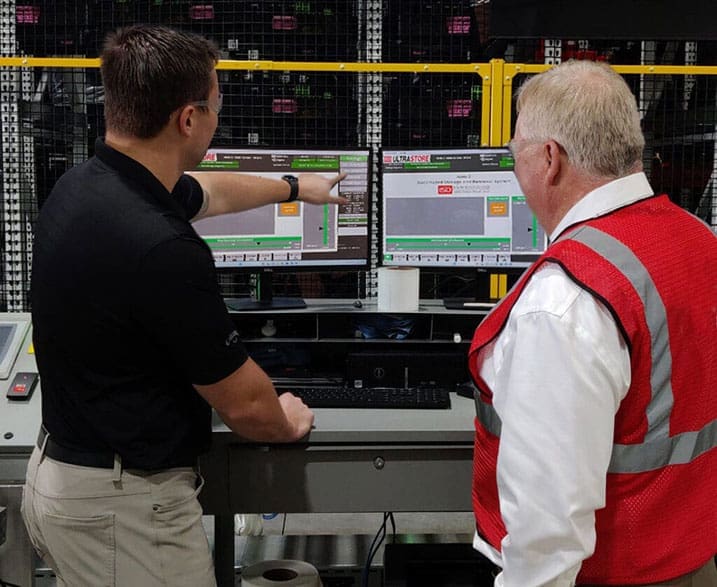To maximize the efficiency of automated systems, ISD integrates advanced warehouse software solutions that orchestrate operations, optimize workflows, and provide real-time visibility. Our software integrations ensure seamless coordination between AMRs, AGVs, robotic systems, conveyors, and other automation technologies, enhancing overall performance. Properly integrated warehouse software delivers:
Using our OptimalOps-Process, ISD collaborates with you to identify warehouse software solutions that align with your operational needs, ensuring scalability and adaptability.

Control Systems manage the low-level operations of automated equipment through hardware-based systems like Programmable Logic Controllers (PLCs) or equipment controllers. They execute precise commands to regulate movements, speeds, and actions of devices such as conveyors, sorters, and robotic arms, ensuring reliable and synchronized performance. Warehouses use controls to maintain real-time equipment functionality and support integration with higher-level systems like WCS for seamless automation.
Manufacturing Execution System (MES) gives real-time oversight of production operations, tracking work orders and quality control. It connects enterprise planning to actual manufacturing, bringing greater efficiency and data-driven decisions. MES also supports regulatory compliance and continuous improvement through comprehensive production traceability.
Warehouse Control System (WCS) directs and coordinates real-time activities of automated material handling equipment, such as conveyors, AGVs, sorters, and robotic systems. It acts as a bridge between the WMS or WES and equipment controllers, optimizing product flow, routing, and load balancing to minimize bottlenecks. Warehouses use WCS to ensure efficient equipment operation, real-time monitoring, and integration with higher-level systems for streamlined automation.
Warehouse Execution System (WES) orchestrates, coordinates, and optimizes tasks across automated systems like ASRS, AMRs, conveyors, and sortation equipment. It prioritizes orders and directs robots for efficient material flow. Warehouses use it to streamline fulfillment and reduce bottlenecks.
Warehouse Management System (WMS) tracks inventory, manages storage locations, and oversees order fulfillment processes. It provides real-time data to improve accuracy and visibility. Operations use it for inventory control and workflow planning.
Ready to find your solution? As a systems integrator, ISD continuously looks for leading technologies in both material handling and information systems paired with proven operational strategies. Our solutions range from simple to highly automated, earning us the
trust and business of clients spanning decades.